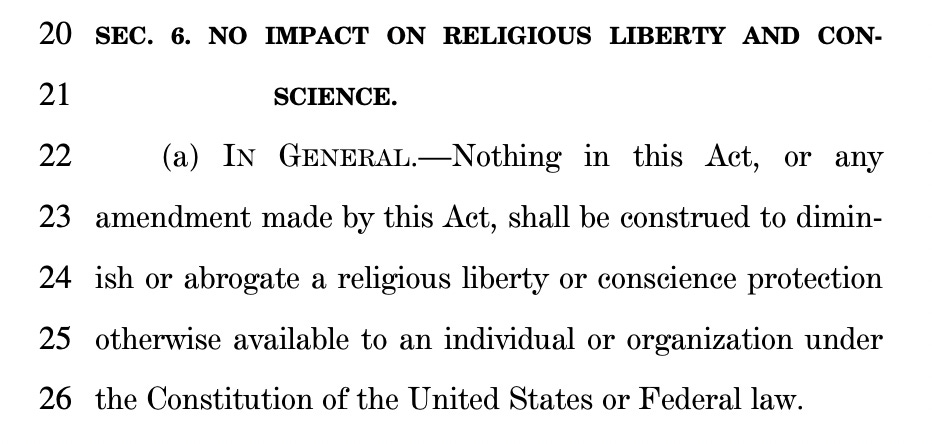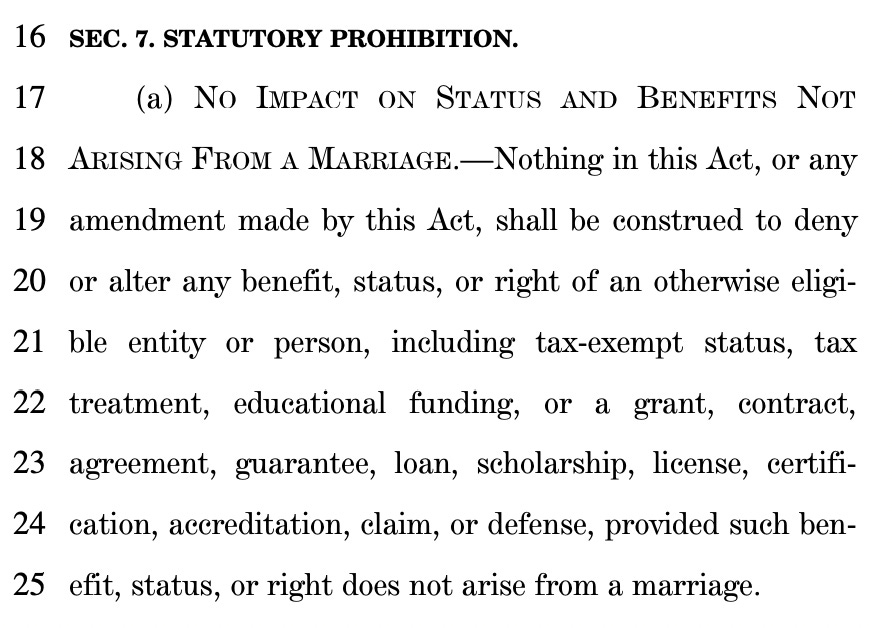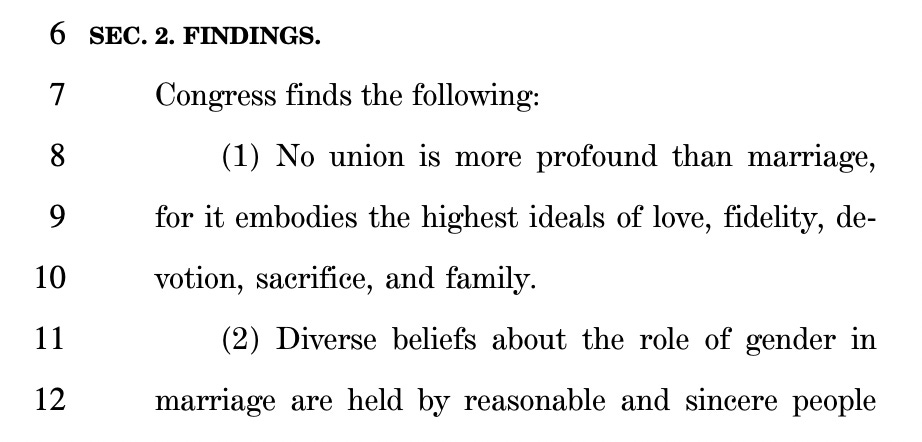The Senate's marriage move — what it means and how it's different from the House bill
While bills advancing voting rights and LGBTQ protections have been held up by the filibuster, 12 Republicans joined all 50 Democrats to advance a bill that provides some marriage protections.
The Senate voted 62-37 on Wednesday to invoke cloture on the new, Senate version of the Respect for Marriage Act, with 12 Republicans joining all 50 Democrats in voting to advance the bill — the biggest hurdle it faces to becoming law before the end of the year.
The legislation, versions of which have been batted around Congress since 2009, would repeal the 1996 federal Defense of Marriage Act, which had banned recognition of same-sex couples’ marriages, and provide some state-level protection, primarily by banning states from discriminating against same-sex couples’ marriages even if such marriages aren’t legal in that state.
The Respect for Marriage Act had been more or less left to the wayside after 2015’s Obergefell v. Hodges and 2013’s United States v. Windsor decisions struck down state bans on same-sex couples’ marriage rights and the federal ban on recognizing such marriages, respectively. Justice Clarence Thomas’s warning in the Dobbs v. Jackson Women’s Health Organization decision overturning Roe v. Wade that he’d like to see the court reverse Obergefell, however, gave new fire to bill.
Those fears over what the court could do next — and an unbelievable change of public opinion and subsequently politicians’ views on same-sex couples’ marriages — led the House to take quick action. The House passed the Respect for Marriage Act, H.R. 8404, less than a month after the Dobbs decision.
Then, things slowed down — as questions about Republican support (specifically, whether there would be 10 votes to stop a filibuster) swirled around DC. Eventually, word came down that the Senate vote would not come before the election.
Fast-forward past the election, and the bill was ready to be voted on. As noted above, cloture was invoked Wednesday, meaning debate will eventually come to a close once the bill is considered on the floor and then a final vote can be held. Cloture, which requires meeting a 60-vote threshold, has been the locked door for many of the Democrats’ legislative goals — most notably the John Lewis Voting Rights Act passed by the House this Congress, but also another key LGBTQ rights bill, the Equality Act.
Once the Senate votes on final passage of the bill, which the New York Times reported is likely to come after Thanksgiving, the House will need to vote on the Senate’s version before it goes to President Biden for his signature.
It’s important to pass these protections, and people should be happy if these protections become federal law. As I noted earlier today, the changes represented by Wednesday’s vote were no more clear than by looking at the 1996 Senate DOMA vote — when only 14 Democrats and no Republicans opposed it. More than two-thirds of Democrats and all Republicans voted for DOMA.
Today, all Democrats and 12 Republicans voted to repeal DOMA — and go further to provide some state-level protections. And while much more is needed — particularly as attacks on transgender people appear to be only growing — progress is progress, and should be celebrated. (And used as momentum to seek more.)1
THE CHANGES: There were several changes made to the House bill — mainly by way of clarifying things the bill does not do. The two key protections provided by the bill passed by the House remain as the two key protections in the Senate bill. I do want to spend some time, though, laying out the changes.
First, the Senate bill prevents the federal government from having to recognize a marriage entered into under state law if the marriage includes more than “2 individuals.” In other words, in repealing the Defense of Marriage Act, the federal government is making clear that, should any state recognize a marriage of “3 individuals” or more, the feds don’t need to do so.
Second, the Senate bill adds a “religious liberty and conscience” clause, which basically says this bill doesn’t change any religious liberty protections you already have — whether under the Constitution or federal law.
Then, the Senate bill goes a bit further, making clear that a whole range of religious-based organizations don’t need to provide anyone with goods or services to help them celebrate their marriage. And that the people getting married can’t use this bill, if it becomes law, to sue them.
In addition to the explicit religious liberty provision, the Senate bill also adds a provision that makes clear that this law isn’t going to effect, say, a church’s tax-exempt status.
Then, just to be sure, it really, really makes clear the bill doesn’t authorize “polygamous marriages.”
Finally, the Senate bill adds a findings section. Although it is up top in the bill, this is not the most important change, so I’m ending with it. They aren’t the operative provisions of the bill, but they do set the tone and justification for the bill — and become something that is voted on and passed into law. So, we should know these findings are here.
I could, want to, and will talk and write about other aims in the future, but I did want to get this newsletter — about this cloture vote and this bill — out today. (And I’m running out of space anyway because of all of the images.)











This was a clear and easily understood analysis. It will help me explain this vote to family members. Thanks.
This law still relies on the marriage being valid at the state level, so if a state bans same sex marriage, then this law would do nothing to protect same sex marriages in that state